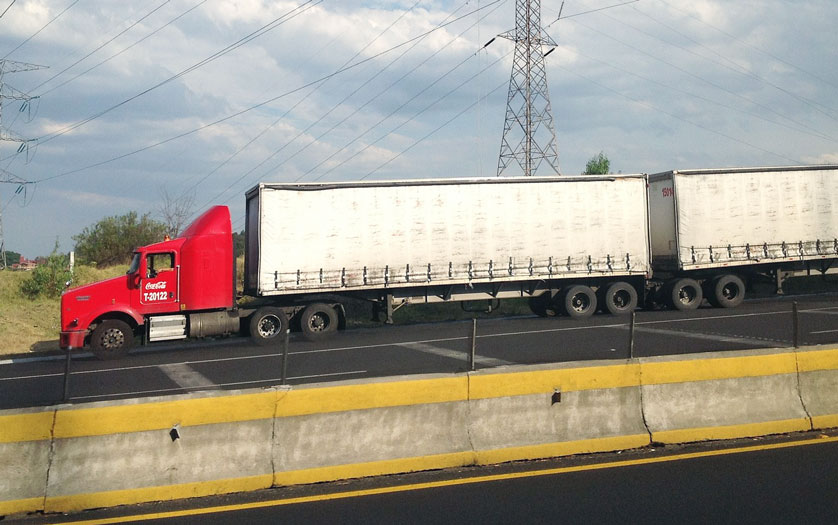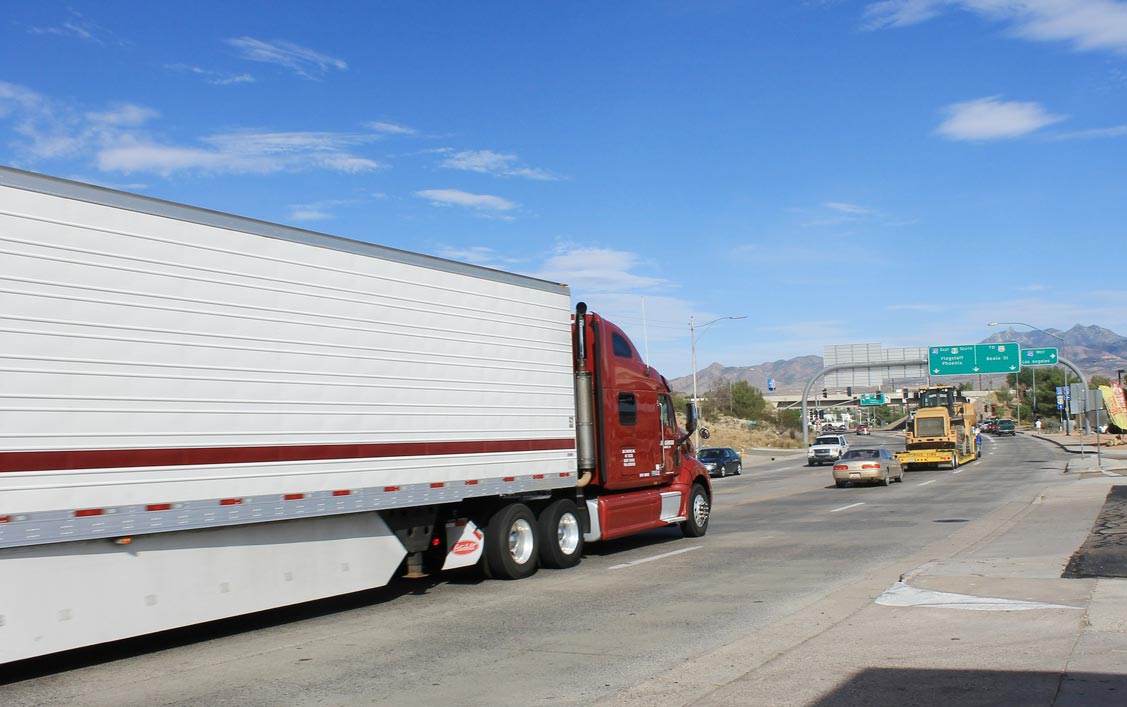Would Truck-Only Lanes Prevent Semi Truck Accidents?
It can be intimidating to share the road with semi trucks. After all, most passenger vehicles are nowhere near the size of an eighteen-wheeler. Their large size gives semi trucks more blind spots than the average car, increasing the possibility of an accident. With so many different vehicles sharing the road—semi trucks, cars, RVs, motorcycles, […]

October 2, 2017

It can be intimidating to share the road with semi trucks. After all, most passenger vehicles are nowhere near the size of an eighteen-wheeler. Their large size gives semi trucks more blind spots than the average car, increasing the possibility of an accident.
With so many different vehicles sharing the road—semi trucks, cars, RVs, motorcycles, bicycles—it’s not surprising that some cities attempt to designate lanes for certain vehicles only. Many cities have bicycle-only lanes to try to keep cyclists safe from larger vehicles. Some roads ban semi trucks due to weight restrictions.
But what if a city like Indianapolis implemented truck-only lanes? Would separating semi trucks from the crowd decrease semi truck accidents?
The Case for Truck-Only Lanes

Don’t misunderstand: drivers of passenger vehicles aren’t trying to get big, scary trucks off the road out of fear. In fact, many proponents for truck-only lanes are truck drivers themselves.
One benefit to truck-only lanes for truck drivers would be truck platooning. Truck platooning is when semi trucks drive right behind one another in a line. The truck leading the line navigates and stays in constant communication with the rest of the drivers in the makeshift train of trucks. This saves time and money, and it’s also more environmentally friendly than multiple trucks driving separate from each other.
However, it almost goes without saying that truck platooning has the potential to be incredibly dangerous. With all of those semi trucks operating in close proximity to one another, a truck accident would be catastrophic.
Truck-only lanes would also likely allow for longer combination vehicles (LCVs). Whereas truck platooning involves multiple semi trucks following one another, an LCV involves one truck with multiple trailers.
Who Can Use Truck-Only Lanes?

Considering they’re called “truck-only” lanes, you would think the question of who can use them would be easy to answer. But it’s not so simple.
California is one state that already uses dedicated truck-only lanes. When a truck-only lane is introduced in a highway, semi trucks must use it. If they don’t, they may face a fine.
But passenger vehicles, although encouraged to use other lanes by green guide signs, are legally still allowed to use truck-only lanes.
That’s in California, though. If truck-only lanes ever came to Indiana, they could look very different. Would they be more similar to the lanes proposed for Indianapolis’s new bus rapid transit (BRT), which only designated buses can use?
According to the Federal Highway Administration, there are three kinds of truck-only lanes typically proposed:
- Two lanes in each direction (four lanes total) for semi trucks, separated from current traffic by barriers
- One lane in each direction (two lanes total) for semi trucks, located (where possible) in the median and separated by barriers; a breakdown lane and an additional passing lane every few miles would also be included
- One lane in each direction (two lanes total) on the right side of existing roads, to be used by trucks exclusively; left lanes would be passenger-vehicle-only, and middle lanes could be used by both groups
The Case Against Truck-Only Lanes

Although some truck drivers are for truck-only lanes, others are firmly against them.
One of the biggest downsides to truck-only lanes is cost. Georgia’s I-73 North Truck Lanes project comes with an estimated $2 billion price tag. The Federal Highway Administration estimates that truck-only facilities along existing rural interstate would cost about $2.5 million per mile of lane. That increases to $10 million per mile of lane for two lanes in each direction (four lanes total).
And that’s only on the rural interstate. If you want truck-only lanes in urban areas, the cost will only increase. That’s not to mention if changes need to be made to existing overpasses, entrance and exit ramps, and general topography in order to accommodate new lanes.
How Would Truck-Only Lanes Affect Truck Accidents?

Because there are so few truck-only lanes, data on whether they increase or decrease accidents isn’t yet available. But it’s worth thinking through nonetheless. There are some safe predictions we could make about truck-only lanes.
First, it’s worth acknowledging that truck-only lanes would keep semi trucks separate from other vehicles. Because of this, cars could operate next to trucks in their blind spots and not fear getting hit because trucks would have to stay in their lane.
However, as mentioned before, if multiple trucks are operating in close proximity to one another and an accident occurs, injuries are likely to be catastrophic. The safety of truck drivers should be taken into consideration. Also, there’s nothing that says a truck that’s been hit in an accident by another truck will stay in the truck-only lane, even with barriers in place. An accident in a truck-only lane poses a threat to everyone on the road.
It’s also safe to assume that there might be an increase in accidents at the entrances and exits of truck-only lanes. Confused passenger vehicles may accidentally enter truck-only lanes. If they recognize their mistake, they might try to veer out of the lane and hit someone else, or they might slam their brakes and cause a semi truck to barrel into them.
As trucks re-enter traffic after a truck-only lane ends, other vehicles may not be aware that they need to make room for the semis. Trucks may have to brake harshly if there’s no gap for them to enter into the other lanes, possibly causing another truck to rear-end them.
Help from an Indiana Semi Truck Accident Attorney
For now, truck-only lanes only exist elsewhere in the United States, not in Indiana. However, sharing the road with semi trucks can still be difficult.
Whether you’re a semi truck driver who’s been in an accident or someone who has been hit by a truck, an Indiana semi truck accident attorney can help. Call Hensley Legal Group today or contact us online for a free consultation.
Available 24/7
Free Case Review
You won’t pay any fees until we win your case.
It’s easy - you can: